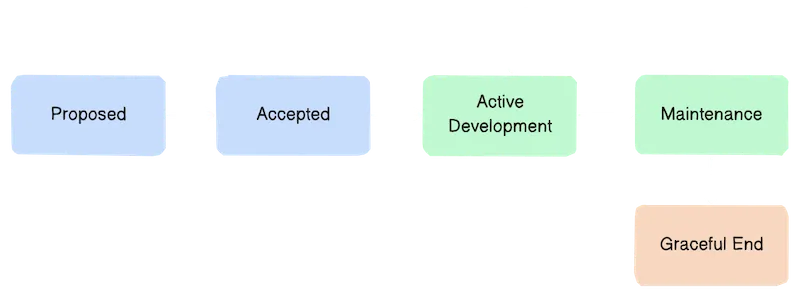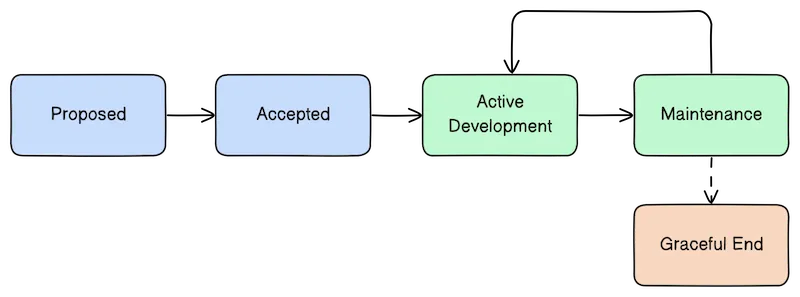About the Janelia Open Science Software Initiative (OSSI)
Open-source code and software are immensely important to progress in all
areas of science. Sharing code allows the same analyses to be performed
across labs, facilitates wide-spread use of computational tools that are
increasingly important in biology, and enables for different groups to
build on top of others’ achievements. Additionally, the transparency
that open-source code provides creates trust in results produced by
scientific software.
The challenge at Janelia is not to convince researchers that they should
share their code but to help them do this as efficiently and productively
as possible. Importantly, sharing code successfully requires more than just
releasing it as-is under an open license. Only well-designed and well-documented
code is easy to reuse or modify for new applications by other developers
(developer-friendly), which usually constitutes significant efforts. Similarly
hard is the design of intuitive user interfaces that allow scientists without
expert knowledge of the underlying algorithms to use the software (user-friendly).
Additionally, sustained long-term effort is often required to support such
code and software over its lifetime — providing user support, fixing bugs,
and maintaining the code. These efforts are not yet reliably recognized as
part of scientists’ career-related work, particularly outside of Janelia,
although they can easily take the majority of time spent on any project involving
software. This forces many scientists to carefully balance between creating
widely useful code/software and moving on to the next project. Therefore,
the Computation & Theory (C&T) research area and Scientific Computing Software (SciCompSoft) created the Open Science Software Initiative (OSSI) to support Janelia researchers in their efforts to create impactful open
source software.
Call for projects
We invite proposals for Open-Source Software projects from scientists at Janelia. The aim of a proposal should generally be to develop, maintain and/or document developer-friendly, user-friendly code that promises to have a significant impact on the community.
OSSI Project Lifecycle
OSSI project proposals enter in a Proposed state and after being evaluated are either moved to Accepted state or rejected (see diagram below). Proposals for otherwise great projects may be rejected due of lack of funding, or because they don't meet criteria for being considered ideal open science projects. In such cases, Scientific Computing Software can still help develop the project if alternative funding is identified. After moving to the Accepted state, Scientific Computing Software will attempt to find software developers to work on the project, either from within the department, or by hiring contractors. Once developers are identified, the project will move to Active Development. During this phase, the goals of the project proposal will be iterated until completion. Once the proposal goals are achieved, the project will move to Maintenance state, which provides minimal ongoing support for the project such as critical bug fixes and dependency updates. A project may be moved back to Active Development if additional features are needed and funding is available. If a project's usefulness to the open science community declines, it may be moved to a Graceful End state which signifies a closing of OSSI involvement with the project. This may involve a hand-off or project archival. All of these lifecycle decisions are made in close collaboration with the project owners.


The phases of an OSSI-funded project.
Details
The creation of OSSI in 2022 was encouraged by the strong open science community at Janelia. The specifics were finalized by Kristin Branson, Reed George, Wyatt Korff, Stephan Preibisch, Konrad Rokicki, Stephan Saalfeld, and Ron Vale. OSSI is funded through the Technology and Open Science Center fund (SciCompSoft internal funding) with strong support from Wyatt Korff (project teams), Reed George (Scientific Operations), the Saalfeld lab, and Ron Vale (who was executive director of Janelia at the time OSSI was created).